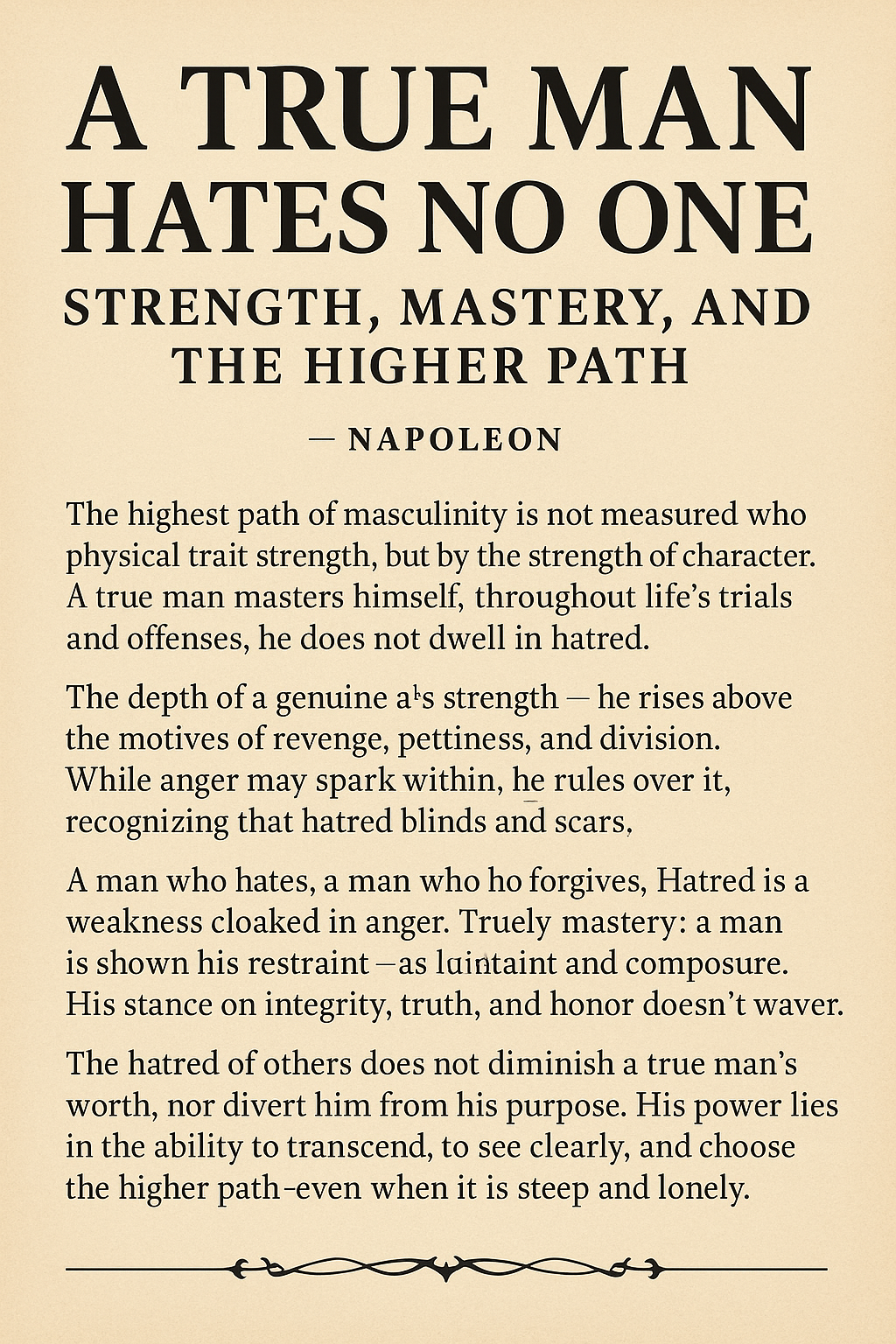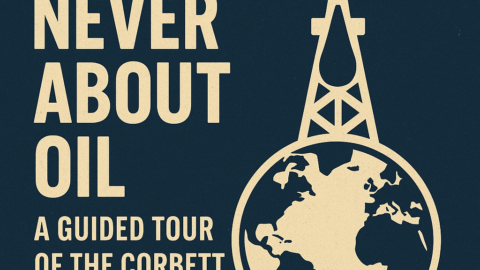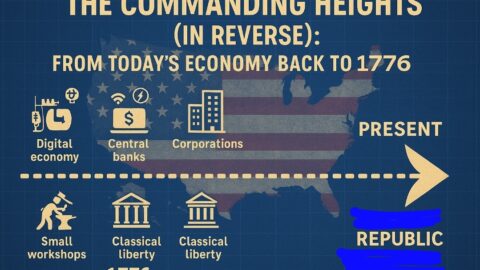“A true man hates no one.” — Napoleon Bonaparte
This brief yet profound statement from one of history’s most powerful and controversial figures carries deep moral and spiritual implications. It’s not just a call to civility—it’s a challenge to rise above the common human impulse to hate. A “true man,” in this sense, isn’t simply a male. He is a person of integrity, maturity, and virtue who has mastered the lower forces of fear, pride, and ego.
What Is a “True Man”?
A true man:
- Lives by principles, not by emotions or peer pressure
- Has mastery over his impulses, especially vengeance and hatred
- Has moved beyond the need to dominate or be validated
- Seeks truth, justice, and understanding, not control or superiority
He stands on Maslow’s fifth level: self-actualization—and aspires toward transcendence, serving a cause greater than himself. In the framework of Zion versus Babylon, he represents the citizen of Zion—consecrated, humble, and courageous.
Why Hatred Has No Place in the Heart of a True Man
1. Hate Is Weakness Disguised as Strength
Hate is reactive. It originates in wounded pride, insecurity, fear, or a desire to control.
- Hatred chains a man to the object of his resentment, giving the other person emotional and spiritual power over him.
- A true man sees that hating someone is wasted energy—energy that could be used to build, teach, or protect.
“He who angers you controls you.” — Epictetus
2. Hate Blocks Learning and Growth
In the Comfort–Fear–Learning–Growth model:
- Hate locks a man in the fear zone, where learning, compassion, and discernment are impossible.
- He cannot step into the learning or growth zones until he releases hatred and embraces curiosity, humility, and love for truth.
3. A True Man Fights Evil, Not People
A true man discerns:
- That most people are products of their time (Voltaire).
- That many are manipulated by the system, propaganda, trauma, or fear.
- That gatekeepers and deceivers are often trapped souls, not enemies to be hated, but realities to be confronted with clarity and love.
“Forgive them, for they know not what they do.” — Jesus (Luke 23:34)
He fights evil systems, false ideas, and unjust actions, but not from a place of hate—from a place of principled strength and inner alignment.
Love, Justice, and the Higher Path
True men don’t avoid conflict. They:
- Protect their families.
- Confront corruption.
- Stand against tyranny.
But they do so with righteous indignation, not vengeful hatred. Their discipline, their courage, and their resistance come from love for what is right—not from a desire to destroy others.
A Universal and Eternal Truth
- Jesus taught us to love our enemies—not because they are right, but because hatred corrodes the soul.
- C.S. Lewis, Viktor Frankl, and Aleksandr Solzhenitsyn echoed this theme: those who allow hatred to fester within become what they hate.
- Even Napoleon, a general and emperor, recognized that internal mastery precedes meaningful external leadership.
Final Reflection: The Higher Road
A true man hates no one because:
- He values truth over pride
- He chooses strength over reaction
- He pursues justice over revenge
- He walks Zion’s path, not Babylon’s trap of emotional indulgence
This is not weakness. This is not passivity. This is power under control—love with discernment, discipline with compassion, and truth with mercy.
To rise into manhood is to rise beyond hatred.
To walk with God is to love those who don’t yet know Him.
That is the higher path.
Frameworks Integrated:
- Maslow’s Hierarchy of Needs (Level 5: Self-Actualization)
- Comfort–Fear–Learning–Growth Zones
- Babylon vs. Zion moral model
- Voltaire’s quote on cultural captivity
- Epictetus and Stoic self-mastery
- Christian teachings on love and forgiveness
- Principle-centered leadership vs. emotion-based reaction







